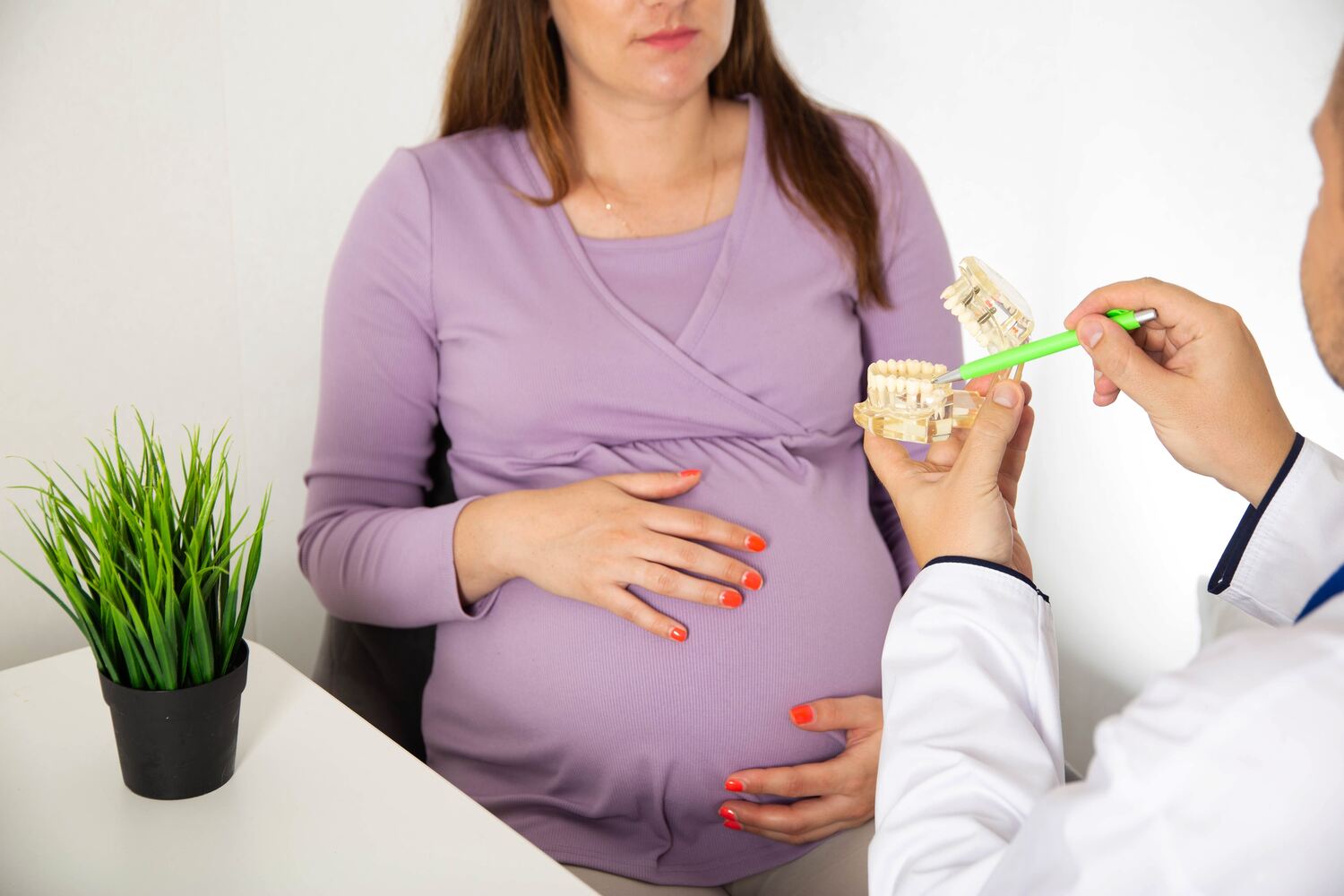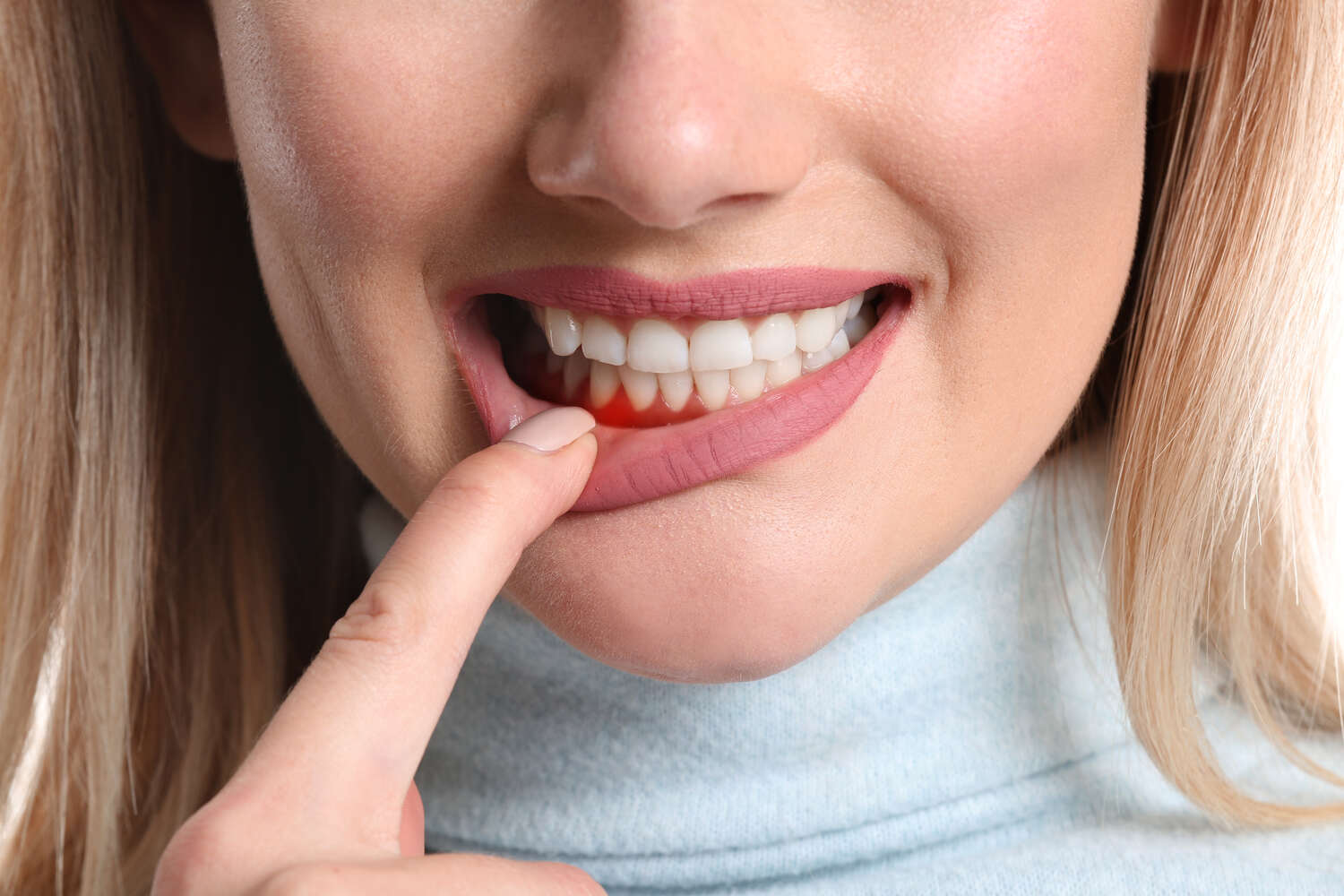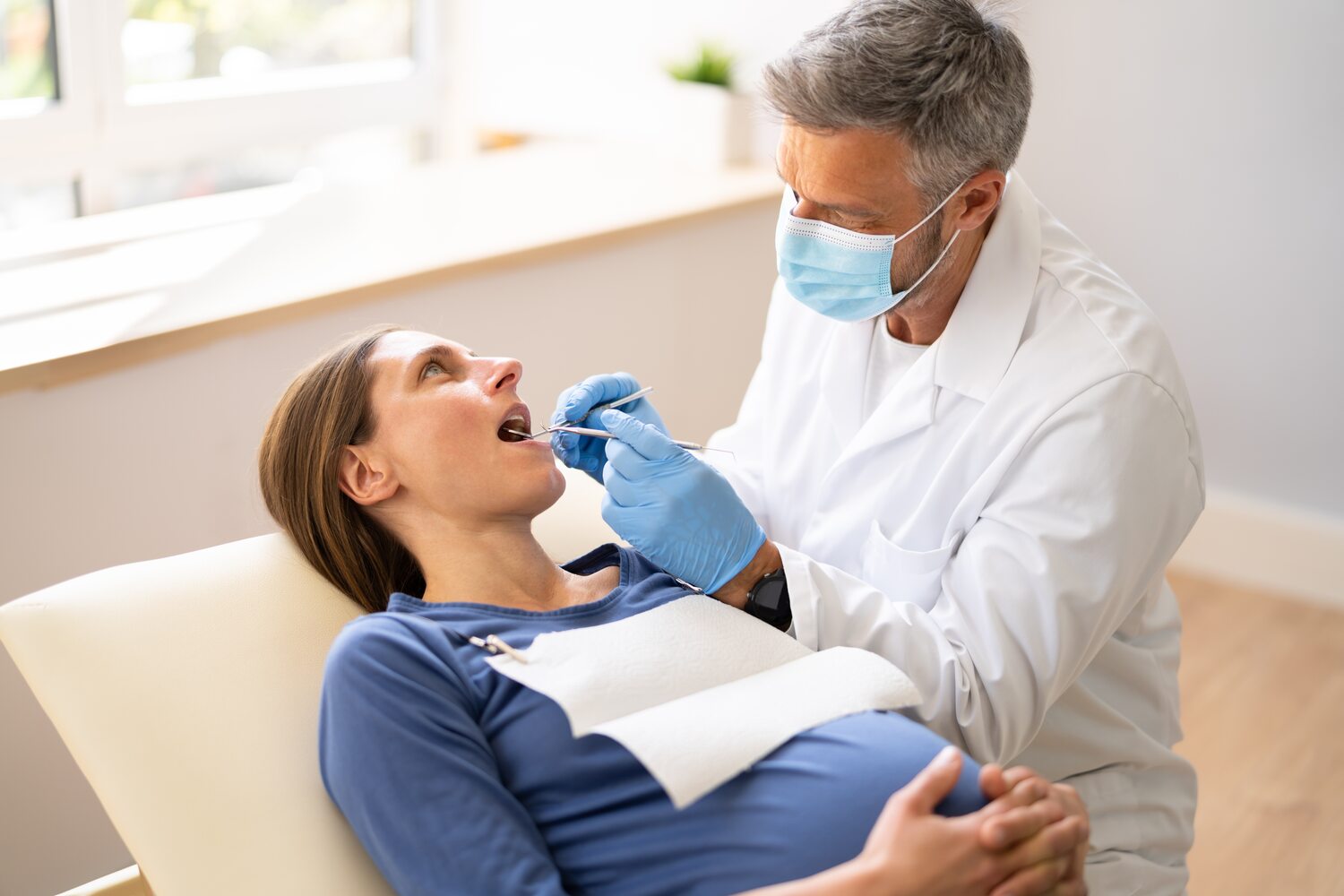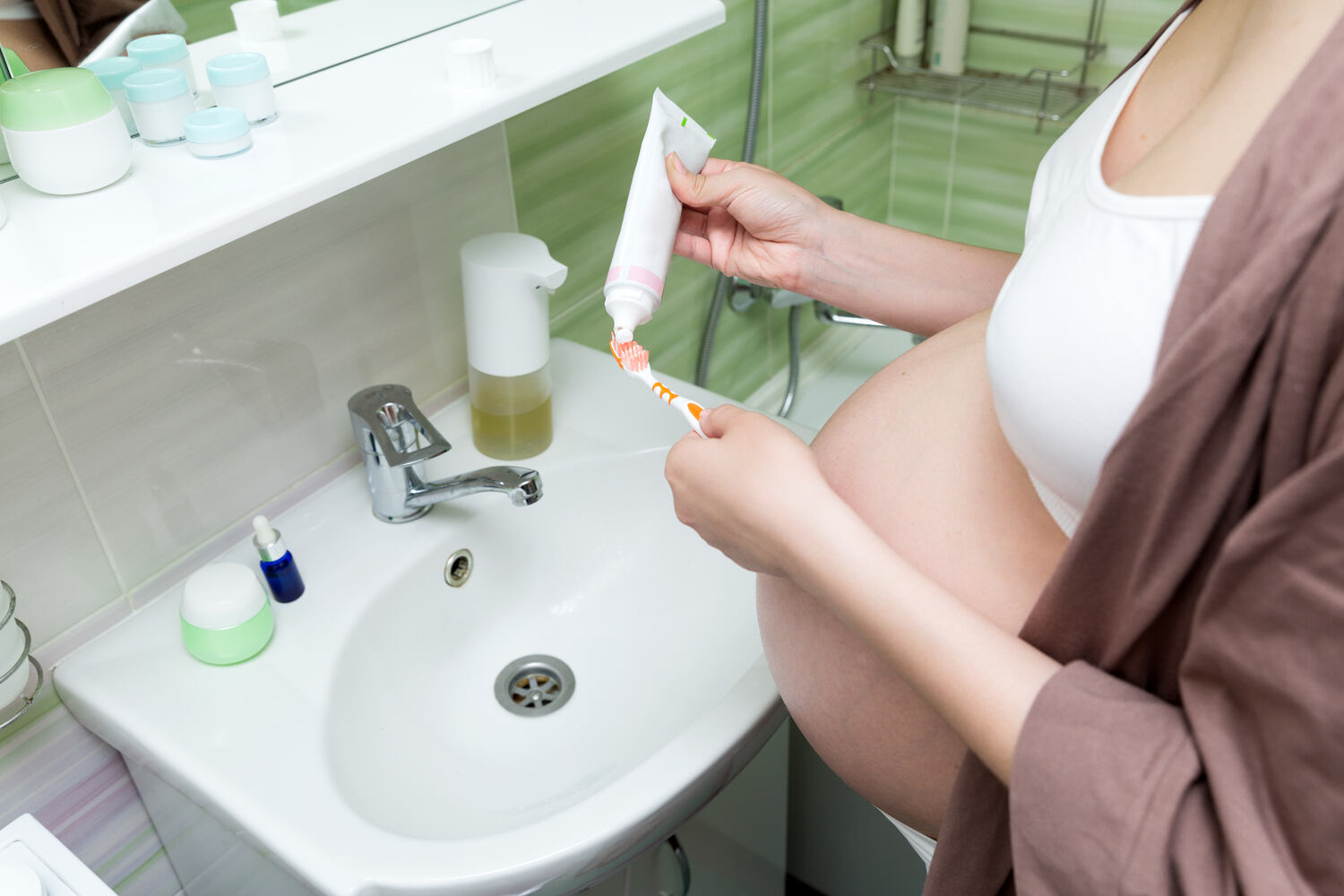
Along with all the physical and emotional changes to your body during pregnancy, you may also see some changes in your teeth and gums. Hormonal fluctuations can wreak havoc in your body during pregnancy, making you more susceptible to gingivitis. This is commonly known as “Pregnancy Gingivitis” [1].
Plaque, a sticky, thin biofilm of harmful bacteria, frequently causes gingivitis, a chronic inflammation of the gums. This prevailing oral condition can lead to a cascade of debilitating symptoms. Read on to explore pregnancy gingivitis to help you determine if you are one of those pregnant women suffering from it.
In This Article
- What is Pregnancy Gingivitis?
- What Causes Pregnancy Gingivitis?
- What Are the Symptoms Of Pregnancy Gingivitis?
- Can Pregnancy Gingivitis Affect the Health of My Baby?
- How is Pregnancy Gingivitis Diagnosed?
- How is Pregnancy Gingivitis Treated?
- How Can You Prevent Pregnancy Gingivitis?
- When Should You See a Doctor?
- FAQ’s
What is Pregnancy Gingivitis?
Gingivitis, an early stage of periodontal disease, is a chronic inflammation of the gums that support and stabilize your teeth. It is often a common manifestation of increased bacterial accumulation that results in the formation of plaque. These coexist to release harmful toxins that erode the gingiva (gums).
Gingival inflammation leading to swollen, bleeding, and red gums is known as pregnancy gingivitis. This often develops between 3 to 8 months of gestational period, which may peak during the third trimester (7 to 9 months) [2,3]. Pregnancy gingivitis may also predispose you to the development of tooth decay and loose teeth.
What Causes Pregnancy Gingivitis?

Increased hormonal fluctuations that occur during pregnancy are typically the cause of this issue. This can significantly affect your body’s response to plaque. Here are some key factors that can contribute to pregnancy gingivitis:
1. Hormonal fluctuations
During pregnancy, the levels of the hormones estrogen and progesterone (female sex hormones responsible for the growth and development of the baby) can alter. This results in increased blood flow to the gums. Hormonal changes make your gums more vulnerable to plaque buildup, leading to inflammation and gingivitis.
2. Increased blood flow
Female sex hormones increase the blood flow to your gums, making them more susceptible to swelling, tenderness, and bleeding.
3. Poor immune system response
Hormonal changes during pregnancy can alter your body’s immune response, weakening the immune system’s ability to fight off bacteria [4].
4. Plaque buildup
Poor oral hygiene combined with hormonal changes can result in increased plaque accumulation on your teeth and gum line. This can secrete harmful toxins that can irritate the gums and contribute to gingivitis [5].
5. Pre-existing conditions
Women with a history of gum disease are more likely to experience worsening of the symptoms during pregnancy.
6. Other risk factors
Several factors, like stress, smoking, nutritional (vitamin C) deficiencies, and genetic predisposition, can increase your risk of developing pregnancy gingivitis [6].
What Are the Symptoms of Pregnancy Gingivitis?
The classical symptoms of pregnancy gingivitis involve changes in the gums. They appear swollen, blazing red with shiny surfaces, and easily bleed when you brush or floss. Your gums may also appear tender, and painful due to increased sensitivity [5].
Sometimes you may also notice mulberry-like, red growths or lumps along the gum line or between the teeth that bleed easily. These lumps are known as “pregnancy tumors” [7]. These are benign (noncancerous) and harmless growths that often go away on their own.
Severe forms of gingivitis, when left untreated, can cause bad breath (halitosis), gum recession (gums pulled away from the tooth surface, exposing the roots), and halitosis (bad breath).
Can Pregnancy Gingivitis Affect the Health of My Baby?

Pregnancy gingivitis does not affect the health of your baby since there is no proven research evidence about it. However, if gingivitis is left untreated, it may lead to a severe form of periodontal disease known as periodontitis.
Periodontitis is a chronic inflammation that spreads to deeper parts of your tooth, such as the jawbone. Periodontitis during pregnancy has been linked to preterm delivery and low birth weight [8]. Thus, it is essential to get yourself treated as soon as you notice the early signs of gingivitis.
How is Pregnancy Gingivitis Diagnosed?
It can easily be diagnosed by a dentist through a combination of an assessment of your symptoms and a clinical examination. The dentist will:
- Record your medical history, past dental issues, pregnancies, and medications being taken.
- Visually examine your mouth to inspect the gums for signs of inflammation.
- Prone the gingival tissues using a special dental instrument called a periodontal probe to measure the depth of periodontal pockets.
For severe forms of gingivitis (periodontitis), your dentist may recommend dental X-rays to evaluate the tooth damage and involvement of the underlying jawbone. Your dentist may take all the necessary precautions while recording radiographs to minimize radiation exposure to your baby. Experts suggest dental X-rays during pregnancy are safe with correct shielding [7].
How is Pregnancy Gingivitis Treated?

The main purpose of dental treatments for pregnancy gingivitis is to reduce gum inflammation by eliminating plaque. Dental procedures during pregnancy are deemed safe and often preferred during the second trimester [9]. Failure to get the required treatment can only worsen your symptoms and cause more damage, leading to periodontitis. This can cause adverse consequences like preterm labor and low birth weight. Thus, consult a dentist as soon as you notice the first signs of gingivitis.
The treatment options may include:
1. Conservative Methods
Brush and floss your teeth regularly, twice a day [5]. You can also gargle your mouth with warm salt water [7]. Prefer eating a healthy diet like fruits, vegetables, dairy products, and whole grains to promote gum health
2. Oral Antibiotics
This helps treat bacterial infections that may cause gingival hyperplasia (overgrowth) or pregnancy tumors
3. Antimicrobial Mouthwash
Helps eliminate plaque buildup through the antimicrobial properties of a prescription mouthwash [5]
4. Professional Dental Cleanings
Supragingival (above the gum line), and subgingival (below the gumline) scaling can effectively eliminate plaque and calculus (hardened plaque deposits)
How Can You Prevent Pregnancy Gingivitis?

Hormonal changes during pregnancy are something you cannot prevent or alter. But you can follow some steps to prevent your risk of pregnancy gingivitis. The best preventive tips you can follow are:
- Maintain good oral health by inculcating regular brushing and flossing habits. Use a soft-bristled brush, and follow a proper technique to avoid injury to the gums while brushing.
- Schedule dental visits frequently when you are pregnant.
- Watch out for what you eat, and limit sugary, sticky foods.
- Remember to brush after eating junk or sugary foods.
- Quit smoking or using tobacco products.
When Should You See a Doctor?
You should see a doctor as soon as you notice warning signs of gingivitis such as swollen, red, bleeding gums, or loose teeth. The earlier you get your symptoms evaluated and treated, the better.
Leaving any type of chronic inflammation untreated is not a good idea for your and your baby’s general well-being. Gingivitis during pregnancy should be treated since it can pose a risk of complications like preterm labor, low birth weight, and preeclampsia. High levels of bacteria can pass on to the baby, so it is best to take care of any signs of gingivitis before the baby is born.
Pregnancy gingivitis, characterized by red, swollen, bleeding gums, is indeed a common issue during pregnancy. This is attributed to hormonal changes that result in gum inflammation and infection. You need to pay close attention to your oral health and seek dental care promptly if you notice any signs of gingivitis. By staying proactive about oral health during pregnancy you can minimize your risk of complications. You can fully enjoy the beautiful journey of pregnancy while maintaining a beautiful healthy smile!
FAQ’s
1. Will Pregnancy Gingivitis Go Away After Pregnancy?
In most cases, pregnancy gingivitis can improve or go away after pregnancy, especially with proper dental care and good oral hygiene practices. However, this may not resolve on its own for everyone. Thus it is essential to maintain good oral hygiene habits and seek dental care during pregnancy and beyond.
2. How Long Does Pregnancy Gingivitis Last?
The duration of pregnancy gingivitis can vary from woman to woman and depends on several factors. For most women, it may resolve shortly after birth.
References
- Bleeding gums in pregnancy
– [https://www.nhs.uk/pregnancy/related-conditions/common-symptoms/bleeding-gums/] - Prevalence, Severity of Extension, and Risk Factors of Gingivitis in a 3-Month Pregnant Population: A Multicenter Cross-Sectional Study – [https://www.ncbi.nlm.nih.gov/pmc/articles/PMC10179599/]
- Relationship between Gingival Inflammation and Pregnancy – [https://www.ncbi.nlm.nih.gov/pmc/articles/PMC4385665/]
- Knowledge of Pregnant Women about Pregnancy Gingivitis and Children Oral Health- [https://www.ncbi.nlm.nih.gov/pmc/articles/PMC6777164/]
- Gingivitis – [https://www.ncbi.nlm.nih.gov/books/NBK557422/]
- Prevalence of periodontal disease, its association with systemic diseases, and prevention – [https://www.ncbi.nlm.nih.gov/pmc/articles/PMC5426403/]
- Oral care in pregnancy – [https://www.ncbi.nlm.nih.gov/pmc/articles/PMC6883753/]
- Periodontal disease in pregnancy and adverse pregnancy outcomes: Progress in related mechanisms and management strategies – [https://www.ncbi.nlm.nih.gov/pmc/articles/PMC9640773/]
- Use of local anesthetics for dental treatment during pregnancy; safety for parturient – [https://www.ncbi.nlm.nih.gov/pmc/articles/PMC5564152/]
